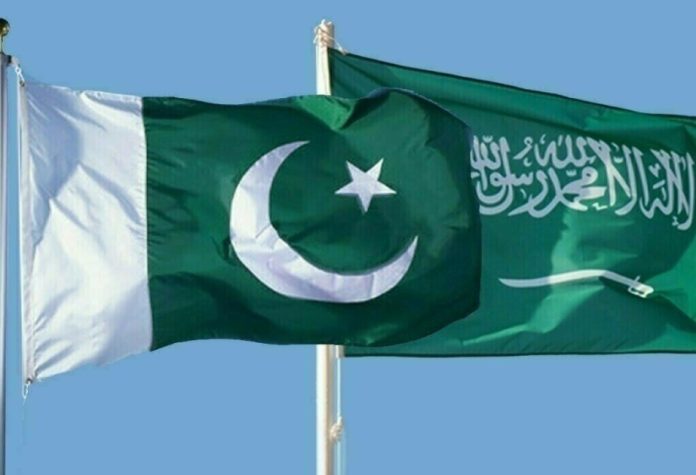A popular Eastern European saying is, “If you have buyers, you will be no more a beggar, even if you are a trash collector.”
Once a student asked Russian President Vladimir Putin during a university lecture why did Soviet Union collapse. Putin said there might be thousands of reasons but the foremost was that the USSR had hundreds of friends but fewer buyers for its production line. This is what Pakistan faces today. Having rich in countless products, its expensive but redundant administrative structure never tried to find buyers and if anyone fortunately came, it ran away after smelling fusty environment.
There is a phrase that there is a light at the end of the tunnel and Pakistan found this ray in the form of the Special Investment Facilitation Council (SIFC) initiated by COAS Gen Asim Munir and Prime Minister Shehbaz Sharif. This single decision has changed the horizon within the last two years and now buyers are showing confidence in investing in Pakistan. The biggest of such kind is coming from the time-tested brotherly country of Saudi Arabia.

A Saudi investor delegation arrived in Pakistan on a three-day visit on Wednesday and this delegation is headed by Saudi Minister of Investment Mr. Khalid Abdulaziz Al-Falih. The delegation includes officials and companies from various sectors including energy, mining, minerals, agriculture, business, tourism, industry, manpower. Business-to-business meetings of the Saudi delegation with Pakistani companies are scheduled for signing various agreements. The arrival of the delegation is an important milestone in Pakistan-Saudi trade relations. Saudi Arabia has shown full confidence in Pakistan’s economy, geographical position, natural resources, and capabilities and Pakistan is a preferred country for investment by the Saudi government and companies. The companies that come to Pakistan have a track record of success. A 50-member delegation of investors from more than 30 Saudi companies in information technology, marine, mining, oil and gas, pharmaceuticals, and aviation is here in Islamabad.
The visit will have far-reaching benefits for the Pakistani economy and two-billion-dollar investment agreements are expected between Saudi Arabia and Pakistan, thirty investment agreements will be signed in various fields, the framework of which has also been prepared.
According to Pakistan’s Ministry of Foreign Affairs, in mid-July of the year, after the agreement of a three-billion-dollar standby arrangement between Pakistan and the International Monetary Fund (IMF), Saudi Arabia deposited three billion dollars in the Central Bank of Pakistan and extended the repayable period of these deposits and this after this development, the IMF board approved a new loan program of seven billion dollars for Pakistan.
The Pakistani government expects that in the coming years, Saudi Arabia will invest heavily in various sectors, especially agriculture, minerals, and mining. In April of this year, Saudi Arabia’s Foreign visited Pakistan along with a high-level delegation and on this occasion, he said that there are opportunities to increase investment in Pakistan and important work in this regard will be done in the future. Pakistan has also recently formed SIFC to facilitate investment from Gulf countries to promote foreign investment and provide facilities to investors. According to official data, about 2.5 million Pakistanis are living in Saudi Arabia for employment, who send billions of dollars every year as foreign exchange to the country, which has a key position in Pakistan’s economy.
Regarding the delegation’s visit to Pakistan, Prime Minister Shehbaz Sharif said in his address to the cabinet meeting that there is a possibility that investment agreements of 2 billion dollars will be concluded. On the other hand, while addressing a ceremony in Islamabad, Deputy Prime Minister Ishaq Dar said that the Saudi Minister will finalize business-to-business investment projects whose value may exceed 2 billion dollars. Sources in the Foreign Office say that about 30 agreements will be signed for investment from Saudi Arabia for agriculture, information technology, construction material, petroleum, power sector, food security, meat, and Pakistani rice export.
In recent months, Saudi Arabia and Pakistan have been working rapidly on bilateral trade promotion and investment agreements. At the beginning of this year, the Crown Prince of Saudi Arabia, Muhammad bin Salman, had also announced an investment package of five billion dollars for Pakistan. Pakistan is keen to partner with its regional allies in trade, defense, energy, and other sectors to overcome the prolonged economic crisis.
Charity to business relations
Instead of seeking aid from Saudi Arabia, Pakistan has made a big decision to trade with it. Trade relations between Pakistan and Saudi Arabia seem to be moving towards a new milestone, where a stronger investment-based relationship will be deployed and sources in the Ministry of Finance claim that by 2027, the total Saudi investment is likely to be more than 5 billion dollars.
Finance Ministry confirms that frameworks have been prepared for investment agreements with Saudi Arabia and the total investment will be more than 5 billion dollars by 2027. Saudi private sector will invest about 1 billion dollars in Pakistan and then the private sector will increase the volume of investment by appointing its local representatives in Pakistan.
MBS—A visionary Leader
Crown Prince Muhammad bin Salman (MBS) is changing the country through his Vision 2030 reform strategy and Saudi Arabia announced significant changes to investment law aimed at attracting international investors. The amended law provides for investors’ rights and freedoms in a robust framework designed to facilitate and improve transparency and business activities and this move has created thousands of private investors with Saudi Arab and thousands of foreign companies are moving fast to invest within Saudi Arabia or abroad in collaboration with Saudi private investors. The amended law promises to protect investors by ensuring the rule of law, fair treatment, and protection of intellectual property along with property rights and making the transfer of funds even easier. The new law makes the registration process easier and complex licensing requirements are replaced by a simplified system. New service centers are being introduced to speed up the process of government transactions and investment. The new law includes several investment-friendly measures including civil transaction law, private sector partnership law, companies law, bankruptcy law, and the creation of special economic zones for achieving a thriving economy; to diversify its economy and create dynamic job opportunities for its citizens. This will happen through commitments to education, entrepreneurship, and innovation, including diversifying the nation’s economy through the ongoing privatization of state-owned assets, including establishing a sovereign wealth fund that will be financed through the partial IPO of Saudi Aramco; unlocking underdeveloped industries such as manufacturing, renewable energy, and tourism; modernizing the curriculum and standards of Saudi educational institutions from childhood to higher learning. By 2030, Saudi Arabia will have at least five universities among the top 200 universities in the world; and refocusing on small and medium-sized enterprises (SMEs) by encouraging financial assistance. Increasing the contribution of SMEs to GDP from 20 to 35 percent by 2030.
MBS’s special interest in Pakistan
Saudi Arabia has decided to start an investment package in Pakistan with 5 billion dollars after a historic meeting of PM Shahbaz Sharif with Saudi Crown Prince Muhammad bin Salman meetings when Sharif visited him at Al-Safa Palace, Makkah after assuming the charge of PM ship in 2022. Since the Sharif family has a long history of personal relationships with the Royal family of Saudi Arabia, the relationship between the MBS and Sharif brothers is quite close. It must be remembered that the Sharif family lived in Saudi Arabia after late General Musharraf sent former prime minister Mian Nawaz Sharif into exile. Saudi Royal family gifted Saroor Palace to the Sharif family who lived there for years. Moreover, COAS Gen Asim Munir also served for a long tenure in Saudi Arabia therefore Saudis know personally the military and civil leadership, and having full confidence in both, MBS offered Pakistan a new era of relation of being a seller instead of being a charity receiver.
Involvement of the Public Investment Fund of Saudi Arabia
The Public Investment Fund of Saudi Arabia considers mining to be important and for them, investing in mining is a key initiative among the 13 key investment sectors. Under the Fund, government institutions and the private sector are offering business opportunities to Pakistan that are not offered to any country in the South Asian region. Both Saudi Arabia and Pakistan working together will have mutual benefits while it can also boost Pakistan’s mining skills and capabilities. Saudi Fund will also invest in Rico Dick, a coal and gold mining project located in the mineral-rich region of Balochistan. After several sessions on investment, the final phase now focuses on how to balance the proportion of economic participation in the project.
MBS’s plan represents a significant pivot towards more diversified and sustainable relations with Pakistan, catering demands of the future and benefiting the citizens of both countries. However, this new outlook needs very responsible conduct from Pakistan
Saudi Arabia’s interest in investing in Pakistan can significantly change the mineral landscape of Pakistan with its public investment fund worth more than one trillion dollars, is now ready to invest to support the development of Pakistan’s mining industry. Minerals such as copper are essential for lithium batteries and play an important role in the energy transition and the development of a renewable economy. However, many of these minerals are found in geopolitically unstable places, which can make mining difficult. Pakistan also has copper and gold reserves which attracted the attention of Saudi Arabia. Pakistan’s renewable energy resources in the global context.
Pak-Saudi Trade indicators
During the first half of this fiscal year, bilateral trade between Pakistan and Saudi Arabia was recorded at 2.4 billion dollars. Pakistan’s exports were $262.58 million and Saudi Arabia’s exports were $2.219 billion. Pakistan and Saudi Arabia have been working together rapidly to expand mutual trade and investment agreements. Crown Prince Mohammed bin Salman has also reiterated Saudi Arabia’s commitment to accelerating a five-billion-dollar investment package. Both countries have strong trade, defense, and cultural ties. More than 2.7 million Pakistani expatriates live in Saudi Arabia, a major source of remittances to cash-strapped Pakistan. Saudi Arabia has often helped Pakistan in the past
Shah Salman Relief Center and Pakistan
Shah Salman Relief Center signed four joint cooperation programs with the National Disaster Management Authority, National Human Development Commission, Pakistan Red Crescent Society, and Kashmir Earthquake Reconstruction and Rehabilitation Program ‘ERA’. The objective of this agreement is to support the reconstruction of communities affected by natural disasters in Pakistan. The projects benefit approximately 360,000 people directly and 690,000 people indirectly at a total cost of USD 14,223,762. Under these agreements, 1,000 permanent housing units will be built for flood-affected families, providing shelter to around 7,000 people in Khyber Pakhtunkhwa and Punjab provinces. Each house is designed with two bedrooms, a kitchen, and a kitchen. The center will also establish 300 community schools equipped with solar energy for clean drinking water across Pakistan. These schools will serve around 15,000 children, while over 100,000 people will indirectly benefit upon their completion. Four secondary schools will be established in the Kashmir region and will provide a safe learning environment for 3,400 students and contribute to the long-term development of the region. Along with this, a national logistics warehouse for the National Disaster Management Authority will be established in the capital Islamabad, which will significantly increase the capacity to store and distribute relief goods during emergencies. 22 service facilities, including schools, health centers, and water projects previously established by the state in disaster-affected areas in Pakistan, to improve access to education, health care, and clean water will be restored.
The Future with Responsibilities
Pak-Saudi relationship is entering into a bold and comprehensive relationship, aimed at reducing Pakistan’s dependence on loaning from the Kingdom and diversifying economic relations through developing private sector partnerships and also finding opportunities in service sectors such as vocational education, health, infrastructure, recreation, and tourism. Crown Prince Mohammed bin Salman’s plan represents a significant pivot towards more diversified and sustainable relations with Pakistan, catering demands of the future and benefiting the citizens of both countries. However, this new outlook needs very responsible conduct from Pakistan’s private as well as public sectors because both sectors have to enhance their capacity to align with the demands of Saudi investors who deal at a global level. Any mishandling of greater opportunities would be disastrous for Pakistan which would harm the great trust MBS is showing in Pakistan.
Source:https://dnd.com.pk/featured/the-new-trajectory-of-pak-saudi-relations/






